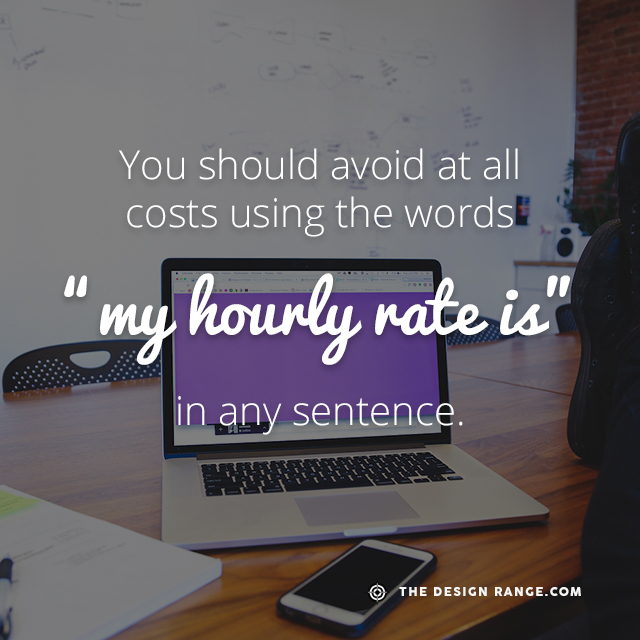This “Habit” has Improved my Freelance Design Business More than Anything Else
Comments Off on This “Habit” has Improved my Freelance Design Business More than Anything ElseHow many New Years resolutions have you abandoned? How many bad habits do you still have? In this article I want to tell you why this year I decided to ditch New Years resolutions all together, how I altered my approach to bad habits and how it has possibly been one of the most successful and important changes I have made not just to my designs and my business, but to my life.
First of all, can we all agree; New Years Resolutions whilst well intentioned are flippin’ rubbish.
You come up with this list of amazing achievements that you have yet to (but almost certainly will) accomplish before the year is out, then sit back with a sense of unearned pride and just imagine how great life will be once you’ve doubled your income, bought that new car and lost those Christmas pounds you seem to have mysteriously aquired.
We all know how this story ends though don’t we? Before January is out those resolutions have proved to be anything but, and are already distant memories resigned to a pile of forgotten good intentions.
New Years resolutions are a waste of time.
So why do we continually come up with them? Because we know we need to get better. It doesn’t take very long for any of us to come up with a list of our faults and for the most part we know exactly what we need to do to solve them.
Are you fat? Lose weight.
Are you poor? Earn more money.
Are you single? Find a partner.
But there’s something missing here isn’t there? Something that our lists of New Years resolutions disregards entirely.
The how. The journey.
Swap resolutions for habits.
You must have heard that it only takes 30 days to form a habit right? No? We’ll it’s actually true, on average it takes about 30 days of doing something every day for that thing to become habitual. For you to do it from then on with little to no cognitive effort.
Sounds great right? Well it is and it isn’t. You see, those 30 days can be tough, and although it probably doesn’t seem that long when you read it in an article like this one, when you’re struggling through forming a new habit, they can seem to go on forever.
The other thing you need to bare in mind is that it has to be 30 days in a row. Without a break anywhere in between. Again, sounds easy enough on paper, but you have no idea how often life gets in the way of stuff.
You see this is the whole point, if you can find a way to incorporate a habit into your life when it seems utterly impossible to do so, then you’ll find that doing it when it’s easy, becomes almost effortless.
So here are the rules.
1. Be specific
You need to know exactly what you have to do each day, explain the habit you want to create in as much detail as possible, give durations, measurements, repetitions, whatever you can to make the task as clear as possible. There can be no wiggle room, you need to know when you’ve completed your task for the day and more importantly, when you’ve failed it. You may need to develop several habits to complete your overall goal, if say like me you want to improve your morning routine, then you may need to break it down into the habits you’ll need to develop to achieve that. For me I had three habits devoted to this; be out of bed for 7:30am each morning, have the bed made before 8:00am every morning, be showered and dressed before 9am every morning. I could have done all three of these at once, and you may be asking why I didn’t, well the answer is in rule 2.
2. Attempt no more than one habit per month
Even if your habits are similar, DO NOT group them together. Devote 100% of your efforts and your attentions to that one thing. You are so much more likely to fail if you bite off more than you can chew. The whole reason we fail so often at New Years resolutions is that we try to do too much too soon, lose weight, go to gym, work harder, learn origami. You’ve got to fit all that in, on top of what you’re doing already? It’s madness. Concentrate on one thing at a time, get that locked down and move on.
3. Never skip a day
This is not a diet, this is not fixing up a house, if you take a day off, you can’t jump back in where you left off. Whilst your habits themselves may be physical, the actual act of forming a habit is not. It’s entirely mental. This is a test of your mental fortitude, of your grit and determination, of your perseverance. Once you take a day off, you lose all of that. It may seem impossible some days to continue with a habit, but that’s the whole point of it, to find a way to make it work on those days when you would usually give up. Once you start making excuses for why you can skip a day, you’ve already failed. So what happens if worse comes to the worse and you do miss a day?…
4. If you fail, you start again
That’s right, you lose everything you’ve done up to that point and you start all over again from day one. Now this is the prime time for people to pack this whole concept in, and trust me, I’ve totally been there. But in truth, this is where habit forming comes into it’s own. You see, some of these habits we won’t be doing because we’re lazy, and just never got around to it, those ones you can wrap up with 30 days no problem. But some are little fuckers. They’re the kind of thing that you KNOW you really struggle with, that it’ll take everything you have to get through. For me it’s waking up… Or rather getting up. I love my bed. The 7:30am wake up habit I knew was going to be tough, and it really was, I failed it multiple times (once on day 29, DAY 29!!), but in the end I got through it, I did my 30 days. Only it wasn’t 30 days. I reality I woken up a 7:30am for over 75 days (almost) in row. That was what I needed to achieve the habit. If you fail, start again, and eventually you’ll have done it enough times. Also – as a side note, that fear of losing all the progress you’ve made so far is a BIG motivator.
5. When it’s done, it’s done
Don’t push yourself to continue a habit once you’ve completed it. The point of a habit is that you do it without thinking, so if you’re having to force yourself to keep doing it then it’s not a habit is it? Plus, you did it – you deserve a bit of a break, so reward yourself (if you even want to). Another example of mine was that I wanted to drink a lot more water throughout the day. I set up a habit where I had to drink 2 litres of water every day from measured containers. It wasn’t’ too difficult and I got through it pretty easily within the first 30 days. But when I was done, those measured containers went in a cupboard. I didn’t need to keep checking I was drinking that exact 2 litres every day, the habit had been formed. I was getting up to grab a glass of water way more often than I was before, and that was the goal. The measurements are there so you know when you’ve achieved or failed your goal during the 30 days. They’re not suppose to be there for the rest of your life. It’s a habit, not a religion. There is also another really important reason that I stop the habit after 30 days in a row, and that is quite simply, so that when I’m really struggling with a habit, and I’m seriously thinking of packing the whole thing in, I can just take a moment and say to myself “it’s only 30 days dude; nut up”.
The only exception
So the only exception to any of this is with rule 2, and it’s kinda because of rule 4.
So you’re suppose to attempt only one habit every month right? But what if you fail and have to start over? Does this push all the other habits you had lined up back until you get this one under your belt? No is the answer, and here is the reason.
If you’ve been trying to nail a habit for 30 days already, chances are you have the process down, you’ve worked out the kinks, you know what you’re doing. Even if you’ve failed a couple of times, you should know where you went wrong and how to stop it happening again. In short – that habit, that’s not a habit yet, is actually probably enough of a habit already for you to start concentrating on something new.
Does that make sense?
Basically, the habit that you failed probably doesn’t require as much concentration and effort as it did when you first started it 30 days ago. You can start on something new, and still have this ticking over in the background without too much trouble. I worried for a while about this, if I’d be piling things on top of one another to such an extent as that it’ll all come crashing down around me. But it never did, in fact the opposite was true, even if my habits were unrelated, the process of working something new into my day carried over and actually helped in a lot of ways. You’re constantly conscious of yourself and the decisions that you’re making, and that in itself is a very good habit to have.
If you’re reading this, and it’s sounding ok, but maybe you’re a bit sceptical still, please I beg you; try it. Try it for just a few months, just pick a few habits you want to pick up (or lose) and just give it a go. But if you do, you have to promise me two things (and this is really the first test of your determination in a way). First of all do not half arse it! You have it give it both barrels and really commit. It is ONLY 30 DAYS, you can totally nail that! The second is that you HAVE to tell me in the comments below what the habit is you’re going to attempt – don’t bullshit me on this either, I really want to know, so you better do it.
I’m going to write another article on this I think, I really don’t want it to fade away into the archives as some one shot random article, because it’s genuinely really useful. So next time (I won’t say next week because my habit for this month is to write an hour every day, so hopefully I should be churning out a lot more articles ???? ) I’m going to write about my process of how I actually go about developing habits, and give a couple of case studies so far.

